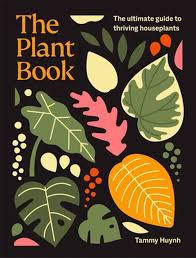Scythe by Neal Shusterman
- NZ Booklovers

- Mar 1, 2018
- 2 min read

“Thou shalt kill.” Within moments of opening Scythe and reading its first few sentences, I knew that this book was going to quickly become one of my favourites. Neal Shusterman introduces his interesting and terrifying world with an elegant and enthralling style. There are many stories that claim to be a successor to The Hunger Games, but Scythe is a story that I truly believe is. Scythe follows a perfect, conflict-free world where humanity has conquered death. The only way to die is to be gleaned by a professional scythe.
The story is told from multiple perspectives, particularly young Citra and Rowan, who are chosen to be apprentice scythes. The dual perspective was engaging and Citra and Rowan were both clearly distinguished. Their separate thoughts and feelings were realistic and honest, keeping me attached to them as individuals as well as enjoying their development as friends and their subtle romance. The dynamic between the two characters was entertaining and I found myself rooting for throughout the novel.
The story was well-paced, and I was absolutely captivated, eager to know what happened next. The twists and turns throughout the book were unexpected and increased the stakes, making it furthermore interesting. Shusterman’s style of writing is poetic yet fast-paced, one that I loved and thoroughly enjoyed reading.
What I found most interesting and haunting when reading Scythe was the questions it posed. With a highly advanced society, readers are challenged to wonder what it could mean for humanity. When everything is perfect; when there is no more disease, war, poverty, or hunger; and when there is no government, corruption can still arise. “The greatest achievement of the human race was not conquering death. It was ending government.” Scythe explores the morality of humanity and the various ways people can perceive its meaning. I found it very interesting how different scythes treated their responsibility of killing and how they went about the aftermath. I learnt that even in a perfect world if you give someone enough power, corruption is bound to seep through and cause conflict.
It was also fascinating how the rest of society looked at scythes. They were both celebrated and feared. Scythes were easily recognisable in public by the colourful robes that they wore. I found it intriguing that the robes were coloured and not black. This was because scythes were meant to be bringers of light rather than darkness.
Neal Shusterman weaves together a detailed, realistic and very thought-provoking world, one that is hauntingly akin to our own modern society. As the story progressed, and it continued to delve deeper into the idea of death, the perfect world became darker and darker. I was both enthralled and disturbed. Scythe has quickly found a place on my list of favourite books and I thoroughly recommend reading it. The questions it poses to our world and the capability of humanity will resonate with me and I am looking forward to reading its sequel, Thunderhead.
Reviewer: Emma Jackson
Walker Books



